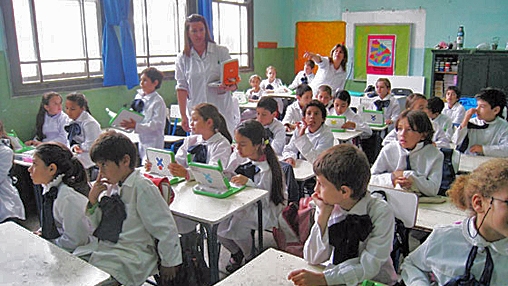Uruguay managed it. All public schools have Internet access, available through a WiFi connection, and each student has a notebook computer.
Thanks to the work of One Laptop per Child, along with the support of the Uruguayan government, all 300 000 students in the country's public schools each have their own computer.
This initiative is part of “Plan Ceibal” which began in 2006 with the aim of reducing the digital divide between Uruguay and other countries as well as between different sectors within Uruguayan society.

